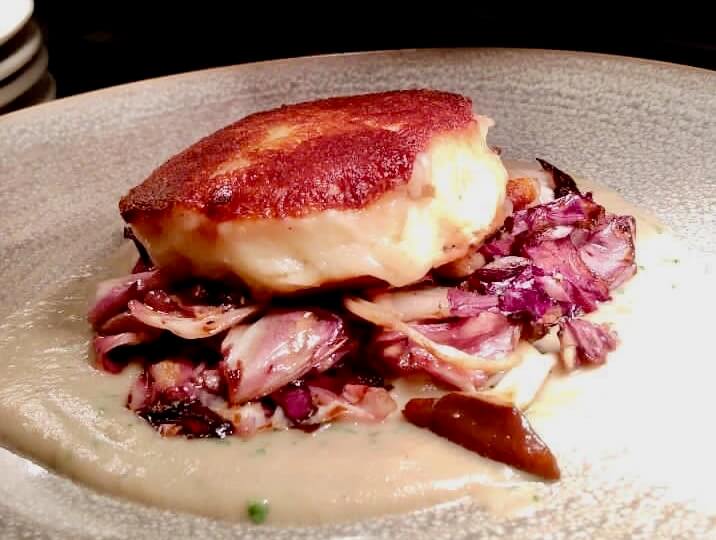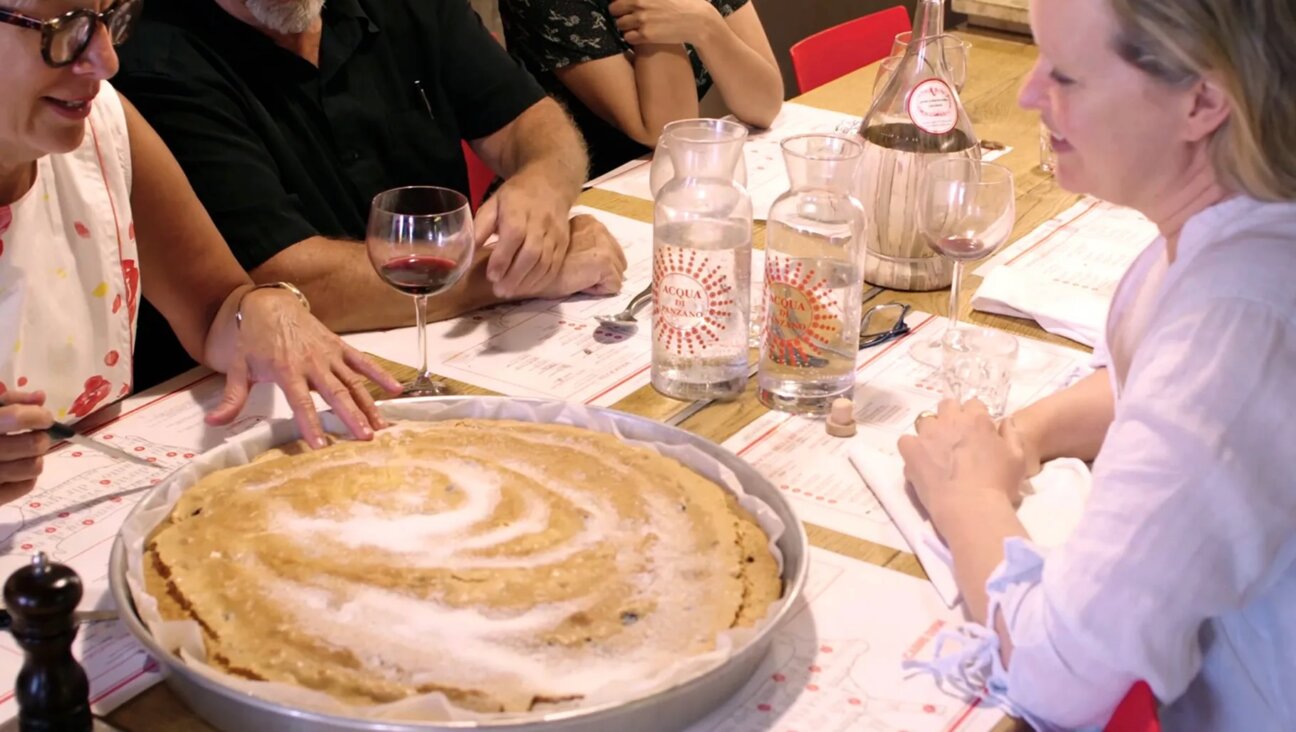Mouthwatering Orange-Scented Macaroons

Photographs by Gayle L. Squires
The Passover tradition that’s been handed down from generation to generation in my family is the luxury of a catered Seder. But we’ve always supplemented the cookie and cake plate with extra desserts. At my grandparents’ table, it was Bubbe’s layered and fruit-studded gelatin mold. At my aunt’s, a large platter of sliced melon, citrus and berries. At my parents’, chocolate-covered cherry-marshmallow twists and chocolate cake from a mix.
When I emerged as the baker in the family, I became the de facto dessert maker. I have three simple guidelines for pre-afikoman treats: 1) avoid matzo or cake meal; 2) use as few bowls and utensils as possible; and 3) make something you would want to eat year-round. After much trial and error, I’ve narrowed my Passover repertoire down to a handful of reliable desserts that serve as solid basics, ready to be adapted from one Seder to the next.
Macaroons serve as a perfect blank canvas. While unadorned mounds of coconut, sugar and egg whites are pretty spectacular on their own, it’s the variations that get me jazzed. Sure, you can add cocoa powder and chocolate chips, but what about citrus zest, cinnamon or rose water? And while most recipes call for sweetened shredded coconut, I urge you to seek out the largest unsweetened flakes (sometimes called coconut chips) you can find for macaroons that offer the greatest contrast in texture with deeply golden, crispy edges and tender chewy insides. Then there are the toppings: chocolate to dip, salted caramel to drizzle or jam to bake into an indented thumbprint.
If you’re not sure where to begin, try the macaroon recipe below, adapted from chocolatier and cookbook author Alice Medrich. They’re laced with orange blossom water and flecked with orange zest. The first bite will make you feel as though you’re basking in a gentle Mediterranean breeze, getting you into the mood to conclude the Seder by singing l’shanah ha’abah bi-Y’rushalayim — next year in Jerusalem (or at least Tel Aviv).
Chag sameach and happy baking!
Orange Blossom Macaroons
Adapted from Alice Medrich’s recipe, new classic coconut macaroons 2.0, in her book “Chewy Gooey Crispy Crunchy Melt-in-Your-Mouth Cookies.” The key is to buy the largest unsweetened coconut flakes (sometimes called coconut chips) instead of shredded coconut. I replaced vanilla with orange blossom water and added orange zest. Medrich suggests a half-dozen variation,s including pressing a square of dark chocolate into the still-warm macaroon, adding lime zest and cinnamon, or mixing in pecans, chocolate and dried sour cherries.
Makes about 30 cookies
4 large egg whites
3½ cups unsweetened dried flaked coconut (also known as coconut chips, not shredded)
¾ cup sugar
1 teaspoon orange zest
2 teaspoons orange blossom water
A generous pinch salt
1) In a heavy stockpot over very low heat or a large stainless steel bowl set directly in a wide skillet of barely simmering water, combine all of the ingredients. Stir the mixture with a silicone spatula, scraping the bottom to prevent burning and lowering the heat if it starts to brown. Initially the mix will be really sticky, glossy and stringy. Continue to stir for about 5-7 minutes until mixture is very hot to the touch and the egg whites have thickened slightly and become opaque. At that point, there will be no more strings.
2) Set the batter aside for 30 minutes to let the coconut absorb more of the goop.
3) Line 2 baking sheets with parchment paper. Preheat oven to 350°F. Position racks in the upper and lower thirds of the oven.
4) Drop heaping tablespoons of batter about 2 inches apart on the lined baking sheets. The piles of coconut will look a bit shaggy and may fall apart a little bit. Keep a small dish of water nearby and use wet fingertips to neaten things up.
5) Bake for about 5 minutes, just until the coconut tips begin to color, rotating the pans from top to bottom and from front to back halfway through the baking time to ensure even baking.
6) Lower the temperature to 325°F and bake for another 10 to 15 minutes, until the cookies are a beautiful cream and gold with deeper brown edges, again rotating the pans from top to bottom and from front to back halfway through the baking time. If the coconut tips are browning too fast, lower the heat to 300°F. Set the pans or just the liners on racks to cool — the macaroons will still be a bit soft, but will crisp up as they cool. Be careful handling the macaroons at this point because hot sugar can burn. Let cool completely before gently peeling the parchment away from each cookie.
Note: The cookies are best on the day they are baked — the exterior is crisp and chewy and the interior soft and moist. Although the crispy edges will soften, the cookies remain delicious stored in an airtight container for 4 to 5 days.
Gayle Squires is a food writer, recipe developer and photographer. Her path to the culinary world is paved with tap shoes, a medical degree, business consulting and travel. She has a knack for convincing chefs to give up their secret recipes. Her blog is KosherCamembert.
A message from our Publisher & CEO Rachel Fishman Feddersen

I hope you appreciated this article. Before you go, I’d like to ask you to please support the Forward’s award-winning, nonprofit journalism so that we can be prepared for whatever news 2025 brings.
At a time when other newsrooms are closing or cutting back, the Forward has removed its paywall and invested additional resources to report on the ground from Israel and around the U.S. on the impact of the war, rising antisemitism and polarized discourse.
Readers like you make it all possible. Support our work by becoming a Forward Member and connect with our journalism and your community.
— Rachel Fishman Feddersen, Publisher and CEO























